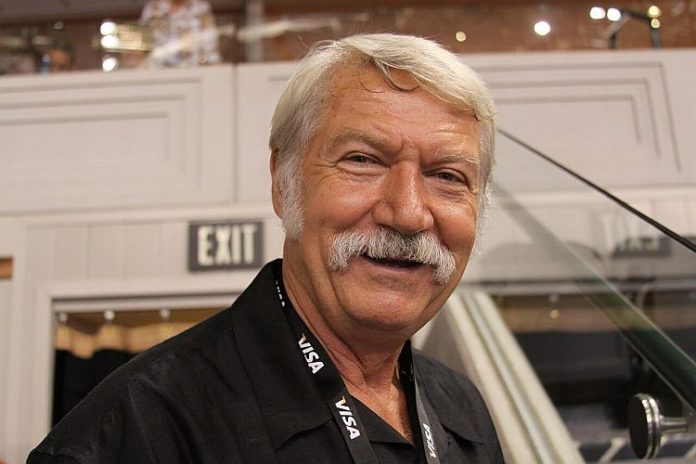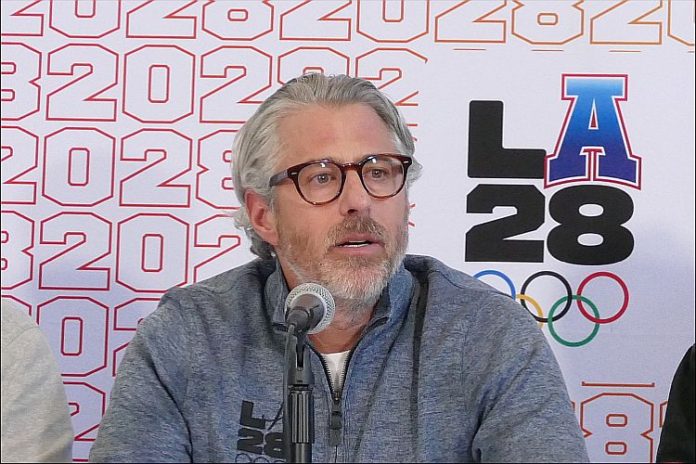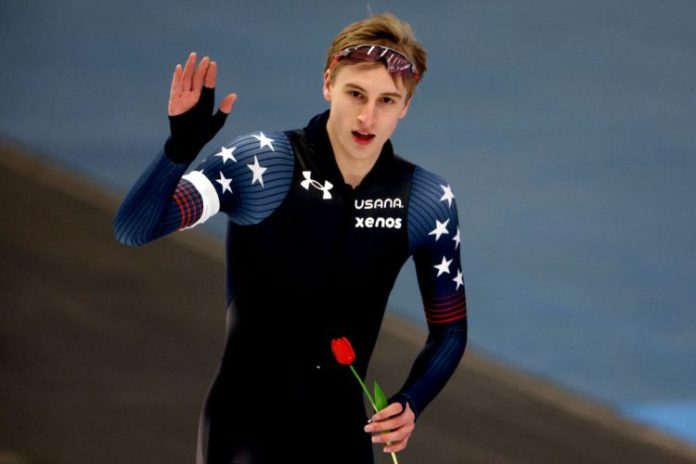★ The Sports Examiner: Chronicling the key competitive, economic and political forces shaping elite sport and the Olympic Movement.★
★ To get the daily Sports Examiner Recap by e-mail: sign up here! ★
≡ SPOTLIGHT ≡
USA Gymnastics announced Saturday that famed coach Bela Karolyi, who mentored stars such as Nadia Comeneci and Mary Lou Retton, passed away at age 82 on Friday, 15 November.
The announcement noted:
“He served as U.S. Women’s National Team coordinator from November 1999 through January 2001 and continued to be involved in the sport after [his wife] Marta assumed duties as National Team coordinator from 2001-2016.
“Karolyi was inducted into the International Gymnastics Hall of Fame in 1997, and he was inducted along with Marta into USA Gymnastics’ Hall of Fame in 2000 as a coaching team.”
Born 13 September 1942 in wartime Hungary in a town that was later part of Romania, Karolyi rose to prominence as the national team coach of Romania, beginning in 1974. One of his star early pupils was Comaneci, who made history at the 1976 Olympic Games in Montreal as the first gymnast to ever be awarded a perfect, 10.0 score on the Uneven Bars during the team qualifying competition. Comaneci earned seven 10.0 marks in Montreal and won three golds – including the All-Around – a silver and a bronze.
The Romanian women won seven medals in 1976 (3-2-2), second only to the USSR. At Moscow in 1980, Karolyi was again the women’s coach, and Comaneci won two more golds and the team again won seven medals (2-3-2).
Karolyi and his wife defected to the U.S. in 1981 and he soon found his next protégé, a 4-foot-9 bundle of energy named Mary Lou Retton. Just 15 years old in 1983, she won the American Cup and progressed rapidly, facing new Romanian star Ecaterina Szabo for the Olympic women’s All-Around title at the 1984 Olympic Games in Los Angeles. Retton won that All-Around and became a U.S. Olympic icon for her performance, loudly exhorted by Karolyi – as her personal coach – during the competitions. Retton also won two other silvers and two bronzes in 1984, in her only Olympic appearance.
Karolyi’s impact was widely noted, and he was in the spotlight again at the 1996 Olympic Games in Atlanta as the personal coach for U.S. gymnast Kerri Strug and others. Suffering from an ankle injury after her first vault in the team competition, Strug was loudly encouraged by Karolyi to maintain her composure and complete a second vault, which helped the U.S. women take the team gold medal. Karolyi carried Strug to the podium in a picture that drew worldwide attention.
Karolyi then became the U.S. national team coach from 1999 to 2001 and Marta took over from 2001 to 2016, during which time the American women became the dominant force in the sport.
The often-outspoken Karolyi was famous for hard workouts and strong discipline and was accused of abuse by some athletes, but was also defended by others. Marta’s approach was a bit less stringent and the U.S. performances were unparalleled.
The Karolyi Ranch gymnastics center outside of Houston, Texas was the venue for many U.S. training camps, and abuses against gymnasts by long-time USA Gymnastics national team doctor Larry Nassar were reported to have been committed there. The Karolyis filed suit, refuting any allegations of responsibility, but the matter never came to trial, being settled as part of the comprehensive settlement agreed to by abuse survivors in 2021.
USA Gymnastics cut ties with the Karolyi Ranch in 2018, two years after Marta Karolyi finished her time as the national team coordinator.
Bela Karolyi will always be remembered for his coaching successes, especially with two of the sport’s most iconic performers in Comaneci and Retton. But he also coached in a time when his methods – formulated in the Cold War Era – produced stars who rose to dizzying heights, but eventually became much less acceptable.
¶
★ Receive our exclusive, weekday TSX Recap by e-mail by clicking here.
★ Sign up a friend to receive the TSX Recap by clicking here.
★ Please consider a donation here to keep this site going.
For our updated, 885-event International Sports Calendar for the rest of 2024, 2025 and beyond, by date and by sport, click here!

























